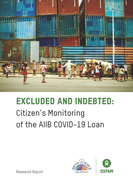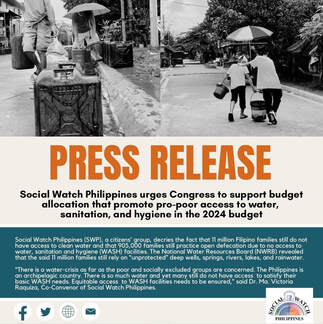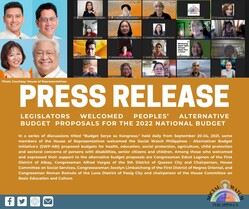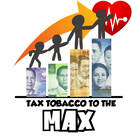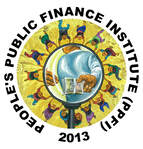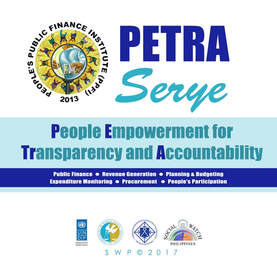News Room
|
FEATURES
THE 2019 EXPANDED MATERNITY LEAVE LAW
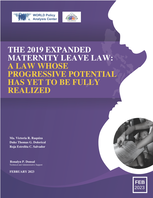
A study entitled “The 2019 Expanded Maternity Leave Law (EMLL): A Law Whose Progressive Potential Has Yet to Be Fully Realized" was undertaken by Social Watch Philippines (SWP) in collaboration with the WORLD Policy Analysis Center (WORLD). This research aimed to understand the initial impact of expanding a Philippine social protection program on maternity leave. This study described and analyzed the features and implementation of the 2019 Expanded Maternity Leave Law (EMLL), including the financial costs and administrative capacities of the government and private sector to implement the law. It also reported the strengths, weaknesses, and challenges in implementation, especially its impact on numerous impoverished workers, particularly those in the informal economy. The research also laid recommendations to improve the performance of the EMLL and cover as many female members of the informal sector as possible.
THE 2022 PHILIPPINE PEOPLE'S SCOREBOARD ON THE SDGs
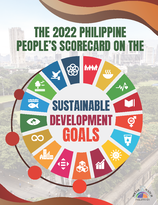
The COVID-19 pandemic has increased poverty and inequality in the country and has laid bare the weaknesses of the public health and social protection systems, educational systems as well as provision of livelihoods and employment to Filipinos. This has led to catastrophic consequences for workers and their families, the majority of whom are in the informal sector and many of whom are women.
Yet, two years since the onset of the COVID-19 pandemic, there has been no fundamental change in the government’s developmental strategy to address these systemic weaknesses and prioritize the care programs and services that our people need. Emerging from the worst period of the COVID-19 pandemic, the country is slowly returning to semblance of ‘normalcy’ (or what is also referred to as ‘the new normal’). The dominant mindset of policymakers, especially those managing the economic levers, is that it is back to business as usual, where the private sector is seen as the main driver of development and with the government providing the ‘enabling policy environment.’ Here, the premise flows from the conventional notion that that the gains of GDP growth will ‘trickle down’ to benefit the poor and socially excluded groups. This premise, which has underpinned development policy across decades should have been long discredited, as the country, even during periods of relatively high growth, continued to be saddled with significant levels of poverty, thereby fueling inequality across various quality of life dimensions. The urgent challenge therefore to the new administration is to promote the realization of our people’s economic, social, and political rights—elusive goals thus far, with a view to ensuring their dignity and well-being as well as care for and protect our environment. Furthermore, citizens have a right to influence and shape public policies and programs, especially as these affect them, their families and communities and thereby actively engage in actions to claim their rights. It is within this perspective that this People’s Scorecard is undertaken. EXCLUDED AND INDEBTED: Citizen's Monitoring of the AIIB COVID-19 Loan
The global pandemic triggered by the novel coronavirus disease (COVID-19) caused upheavals in people’s health and lives and in the economies of many countries. The pandemic also radically challenged state capacity to effectively and quickly protect citizens from adverse social and economic repercussions.
This publication from Social Watch Philippines, supported by Oxfam Pilipinas, features insights and recommendations arising from a citizens’ review of loans availed of by the Philippine government to finance programs aimed at mitigating the social and economic impacts of the Covid-19 pandemic. |
|
